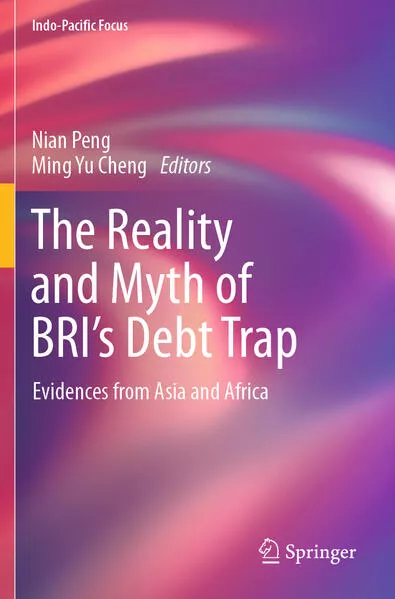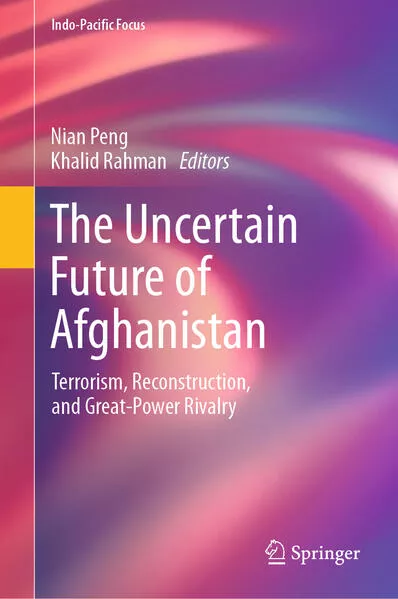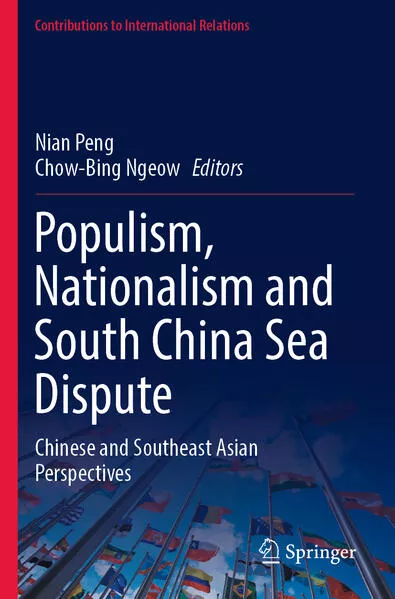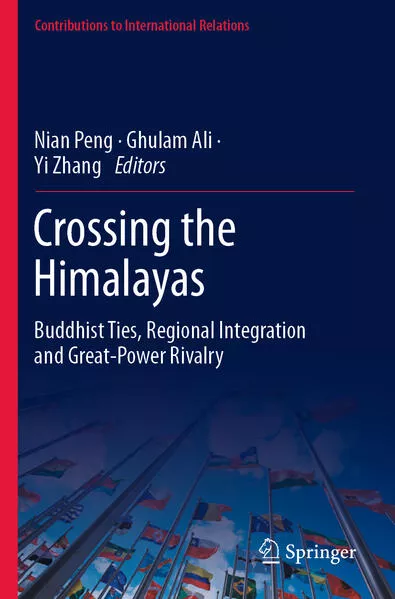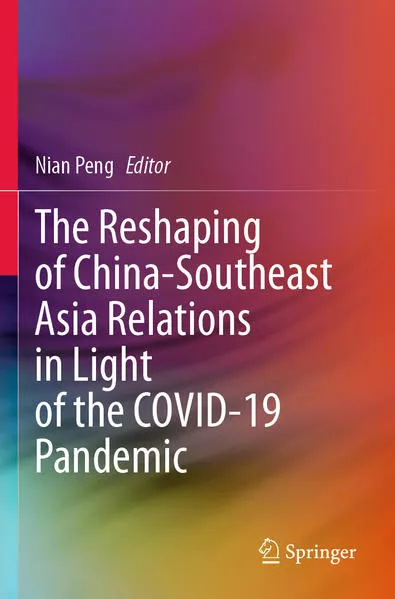
- Publikationen ca: 10
- Fragen & Antworten
Nian Peng
Nian Peng is the Deputy Director&Associate Fellow of Research Centre for Maritime Silk Road, National Institute for South China Sea Studies (NISCS), China. He holds a PhD in Government and International Studies at Hong Kong Baptist University. His main research interests are in the areas of China-Southeast/South Asia relations, Belt and Road Initiative (BRI), maritime security of the Indo-Pacific. He authored three books-The Reshaping of China-Southeast Asia Relations in Light of the Covid-19 Pandemic (2021), International Pressures, Strategic Preference, and Myanmar’s China Policy since 1988 (2020), Leng Zhan Hou Yin Mian Guan Xi Yan Jiu [A Study on Indo-Myanmar Relations after the Cold-War] (2017). His refereed articles have been notably published in Pacific Focus, Asian Affairs, Dong Nan Ya Yan Jiu [Southeast Asian Studies], Nan Ya Yan Jiu [South Asian Studies], Nan Ya Yan Jiu Ji Kan [South Asian Studies Quarterly]. He also contributes his perspectives to many think tanks and various local and international media outlets such as Asia Centre in France, Institute for Peace and Conflict Studies (IPCS) in India, East Asian Forum in Australia, The Diplomat in the US, Bangkok Post in Thailand, Lian He Zao Bao in Singapore, South China Morning Post in Hong Kong, CGTN and Global Times in China. Email: jixi2212@163.com.
Ghulam Ali is Associate Professor at School of Marxism, Department of Political Science,Sichuan University of Science and Engineering, Zigong, China. He obtained his PhD in History and Politics from Monash University, Australia, and his postdoc from Peking University. He is the author of China–Pakistan Relations: A Historical Analysis (2017) and Perspectives on Contemporary Pakistan Governance, Development and Environment (2020). His articles have published in The Pacific Review, Pacific Focus and Issues&Studies among others. He was a Hanban Fellow, Peking University, a Taiwan Fellow at the Institute of International Relations, National Chengchi University (2011),Lee Hysan Visiting Scholar at the University Services Center, Chinese University of Hong Kong (2008), and Contemporary China Fellow at the National Tsing Hua University (2006–2007). Email: ghulamali@yahoo.com.
Yi Zhang is a PhD candidate at the Institute of Taoism and Religious Culture, Sichuan University, China. Her main research areas are Chinese philosophy, Chinese tea culture,and Buddhist culture. Her recent publication is Lao Zhuang Zhe Xue Dui Xian Dai Cha Yi De Duo Chong Ying Xiang [The Multiple Influences of Laozhuang Philosophy on Modern Tea Art] (2020). Email: zjqdzh123@yeah.net.
The Reality and Myth of BRI’s Debt Trap
This edited book aims to present a well-balanced view on the heated debate about BRI’s “debt trap” controversy within the route states by presenting compelling evidence from Asian and African countries. It is contributed by the university scholars, think tank experts, and governmental officials from the concerned parties such as China, USA, South/Southeast Asia, and Africa to discuss this new topic from their perspectives.
The Uncertain Future of Afghanistan
This edited book aims to analyze the domestic politics and foreign relations of the country after the Taliban regained power in August 2021. It touched upon the key issues affecting the Taliban regime, such as peace talks, terrorism threats, BRI cooperation, and the policies of the great powers and neighboring countries toward the new regime in Afghanistan.
The Uncertain Future of Afghanistan
This edited book aims to analyze the domestic politics and foreign relations of the country after the Taliban regained power in August 2021. It touched upon the key issues affecting the Taliban regime, such as peace talks, terrorism threats, BRI cooperation, and the policies of the great powers and neighboring countries toward the new regime in Afghanistan.
The Reality and Myth of BRI’s Debt Trap
This edited book aims to present a well-balanced view on the heated debate about BRI’s “debt trap” controversy within the route states by presenting compelling evidence from Asian and African countries. It is contributed by the university scholars, think tank experts, and governmental officials from the concerned parties such as China, USA, South/Southeast Asia, and Africa to discuss this new topic from their perspectives.
The Reality and Myth of BRI’s Debt Trap
This edited book aims to present a well-balanced view on the heated debate about BRI’s “debt trap” controversy within the route states by presenting compelling evidence from Asian and African countries. It is contributed by the university scholars, think tank experts, and governmental officials from the concerned parties such as China, USA, South/Southeast Asia, and Africa to discuss this new topic from their perspectives.
Populism, Nationalism and South China Sea Dispute
This book analyzes two main trends of prevailing populism and nationalism in China and Southeast Asian nations and rising tensions in the South China Sea (SCS) by experts from China and Southeast Asia. The book involves the most recent developments and indicates future trends.
Crossing the Himalayas
This book aims to analyze two contrasting trends of integration and rivalry among great powers and regional states of Himalaya. It examines the interactions between the great powers and the small states in the Himalayan region, analyzes the multiple effects of the great power rivalry on the regional cooperation, and predicts the possible directions of the future of the geo-politics and geo-economy in the Himalayan region by incorporating the most recent developments.
Populism, Nationalism and South China Sea Dispute
This book analyzes two main trends of prevailing populism and nationalism in China and Southeast Asian nations and rising tensions in the South China Sea (SCS) by experts from China and Southeast Asia. The book involves the most recent developments and indicates future trends.
Populism, Nationalism and South China Sea Dispute
This book analyzes two main trends of prevailing populism and nationalism in China and Southeast Asian nations and rising tensions in the South China Sea (SCS) by experts from China and Southeast Asia. The book involves the most recent developments and indicates future trends.
The Reshaping of China-Southeast Asia Relations in Light of the COVID-19 Pandemic
This book aims to examine the multiple effects of the COVID-19 pandemic on China-Southeast Asia relations from both Chinese and Southeast Asian perspectives. It invites many officials and scholars from the leading think-tanks and famous universities in China and Southeast Asian states to contribute and tries to reveal how has China-Southeast Asia relations been reshaping during/after the COVID-19 pandemic and discuss what kind of measures could be taken to push forward China-Southeast Asia relations and thus ensuring the peace and prosperity in the region.
